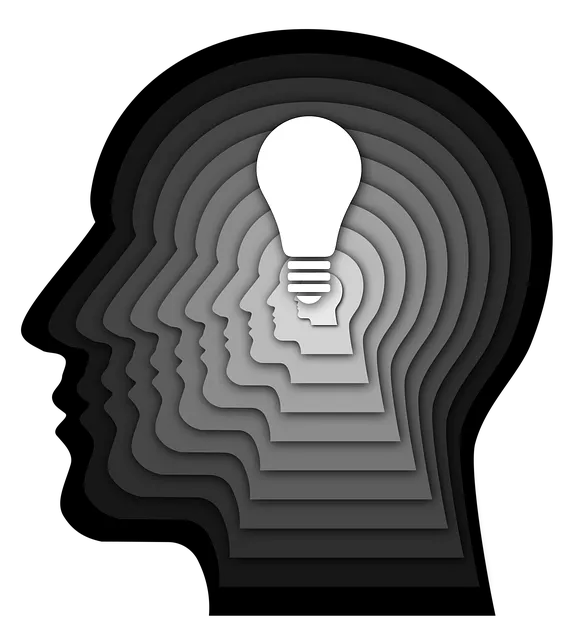The Boulder Kaiser Permanente mental health facility focuses on proactive mental wellness management using self-assessment tools and evidence-based practices such as Compassion Cultivation and Mindfulness Meditation. Their comprehensive assessment tool considers sleep, nutrition, stress coping strategies, social connections, and mindfulness practices. They prioritize user experience design, cultural sensitivity, and strategic implementation for their digital platforms, workshops, and group sessions. By integrating these elements, the facility empowers patients to monitor and improve their mental wellness holistically, similar to a symphony's evolution through performance.
At Boulder Kaiser Permanente Mental Health Facility, there’s a growing recognition of the importance of self-assessment tools in enhancing patient mental wellness. This article delves into the development of comprehensive self-assessment tools, exploring key components, evidence-based practices, user experience design principles, and implementation strategies. By focusing on these aspects, the facility aims to create effective resources that support individuals in navigating their mental health journeys, fostering better outcomes at Boulder Kaiser Permanente.
- Understanding the Need for Self-Assessment Tools at Boulder Kaiser Permanente Mental Health Facility
- Identifying Key Components of a Comprehensive Mental Wellness Self-Assessment
- Incorporating Evidence-Based Practices into Development Process
- User Experience Design Considerations for Enhancing Engagement and Accuracy
- Implementation, Evaluation, and Continuous Improvement Strategies
Understanding the Need for Self-Assessment Tools at Boulder Kaiser Permanente Mental Health Facility

At Boulder Kaiser Permanente Mental Health Facility, recognizing the importance of proactive mental wellness management is paramount. The facility understands that self-assessment tools play a pivotal role in empowering individuals to take charge of their emotional well-being. In today’s fast-paced world, where stress and anxiety are prevalent, these tools offer a unique opportunity for patients to regularly monitor their mental health. By incorporating practices like Compassion Cultivation and Mindfulness Meditation, the facility aims to enhance Emotional Well-being Promotion Techniques, enabling individuals to cultivate resilience and maintain a sense of equilibrium.
The need for such self-assessment tools is driven by the desire to support patients in managing symptoms, tracking progress, and fostering personal growth. Through regular practice, patients can develop a deeper understanding of their emotional patterns and triggers, leading to more effective coping strategies. By providing accessible and user-friendly assessment tools, Boulder Kaiser Permanente Mental Health Facility ensures that individuals have the necessary resources to maintain mental wellness between professional sessions, ultimately contributing to improved overall health.
Identifying Key Components of a Comprehensive Mental Wellness Self-Assessment

In developing a comprehensive mental wellness self-assessment tool, identifying key components is essential to ensure it accurately reflects an individual’s overall well-being. A robust assessment should incorporate various aspects of mental health and include questions related to self-care practices, such as sleep patterns, nutrition, exercise routines, and coping strategies for managing stress. Additionally, evaluating one’s social connections and social skills training is vital; supportive relationships and effective communication play a significant role in maintaining good mental health.
The tool should also assess the presence and effectiveness of stress reduction methods. This could involve querying participants about mindfulness practices, relaxation techniques, or hobbies that help manage stress levels. By incorporating these elements, the self-assessment mirrors the holistic approach adopted by renowned facilities like Boulder Kaiser Permanente’s mental health services, aiming to provide a complete picture of an individual’s mental wellness and guide tailored interventions.
Incorporating Evidence-Based Practices into Development Process

Incorporating evidence-based practices into the development process of self-assessment tools for mental wellness is a strategic approach taken by the Boulder Kaiser Permanente mental health facility. By drawing from research-backed interventions, the facility ensures that the tools are both effective and aligned with best practices in the field. For instance, integrating techniques from Cognitive Behavioral Therapy (CBT) can empower individuals to identify and challenge negative thought patterns, fostering positive thinking and improved emotional regulation.
This integration extends to incorporating culture-sensitive methodologies, reflecting the diverse backgrounds of those seeking mental health support. The Boulder Kaiser Permanente facility recognizes the importance of Healthcare Provider Cultural Competency Training in enhancing patient care. Through such training, staff are equipped to deliver services that respect and accommodate different cultural beliefs and practices, thereby creating a safer and more inclusive environment for all users of their self-assessment tools.
User Experience Design Considerations for Enhancing Engagement and Accuracy

At Boulder Kaiser Permanente mental health facility, user experience (UX) design plays a pivotal role in developing self-assessment tools for mental wellness. Engaging and intuitive interfaces are crucial to ensure users not only complete assessments but also derive meaningful insights from them. Incorporating elements like visually appealing layouts, clear navigation, and interactive features can enhance user engagement, making the assessment process less daunting and more enjoyable. This approach aligns with research suggesting that positive user experiences lead to increased accuracy in self-reporting mental health metrics.
Furthermore, incorporating practices such as Mindfulness Meditation, Compassion Cultivation, and Self-Awareness Exercises within the assessment tools can foster a deeper level of engagement. These evidence-based techniques not only enhance users’ ability to reflect on their mental states but also contribute to improved data quality. By seamlessly integrating these practices into the UX design, the Boulder Kaiser Permanente facility ensures that users not only complete assessments but also develop valuable skills that support ongoing mental wellness.
Implementation, Evaluation, and Continuous Improvement Strategies

The successful development of self-assessment tools for mental wellness requires a strategic approach to implementation, evaluation, and continuous improvement. At the Boulder Kaiser Permanente mental health facility, these strategies are meticulously crafted to align with the unique needs of their diverse patient population.
Implementation involves integrating the self-assessment tools into various healthcare settings, ensuring accessibility for all patients. This may include digital platforms, online resources, or even workshops and group sessions facilitated by mental health professionals. Evaluation is a crucial step, utilizing feedback from both patients and clinicians to gauge the effectiveness of the tools. By collecting data on user experiences and clinical outcomes, the facility can identify areas for enhancement. Incorporating mindfulness meditation techniques, crisis intervention guidance, and inner strength development exercises into these assessments allows for a holistic approach to mental health support. Continuous improvement is an ongoing process, where regular reviews lead to updates and refinements, ensuring the tools remain relevant and impactful in promoting patient well-being, much like a dynamic symphony that evolves with each performance.
The development of mental wellness self-assessment tools tailored for the Boulder Kaiser Permanente Mental Health Facility is a significant step towards empowering individuals to take control of their mental well-being. By incorporating evidence-based practices and prioritizing user experience design, these tools can enhance engagement and improve assessment accuracy. The successful implementation and ongoing evaluation of these resources will contribute to the facility’s commitment to providing comprehensive, accessible, and effective mental health care for the community.



